AITA for “going on strike” and refusing to clean until my kids and husband step up to help?
OP, a hardworking mother, hit her breaking point after returning from a business trip to find her home in complete chaos—dishes everywhere, laundry overflowing, trash piling up—all while her husband and kids had done nothing to help. Instead of cleaning up after them like usual, she grabbed a drink, sat in the backyard, and let them deal with the mess themselves.
The fallout was immediate. Her husband panicked over his boss coming for dinner, her daughter was mortified in front of her boyfriend, and suddenly, they all realized how much OP had been doing. But was this a justified wake-up call or just bad timing?
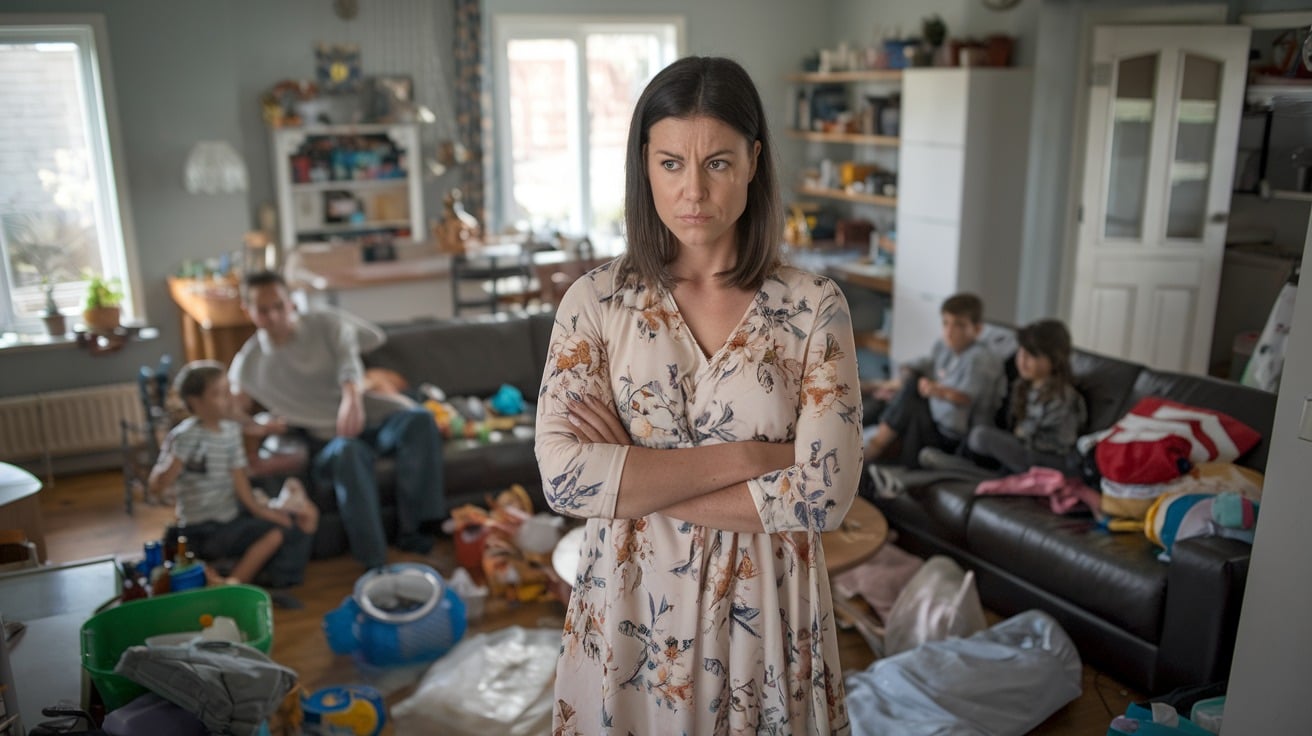
‘AITA for “going on strike” and refusing to clean until my kids and husband step up to help?’

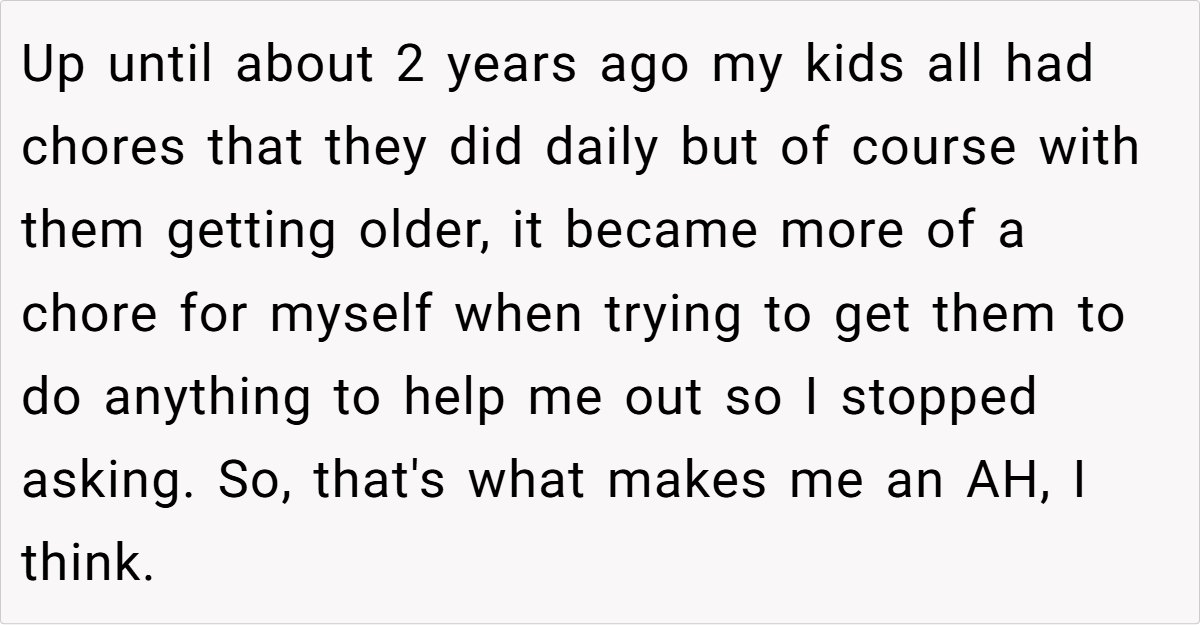




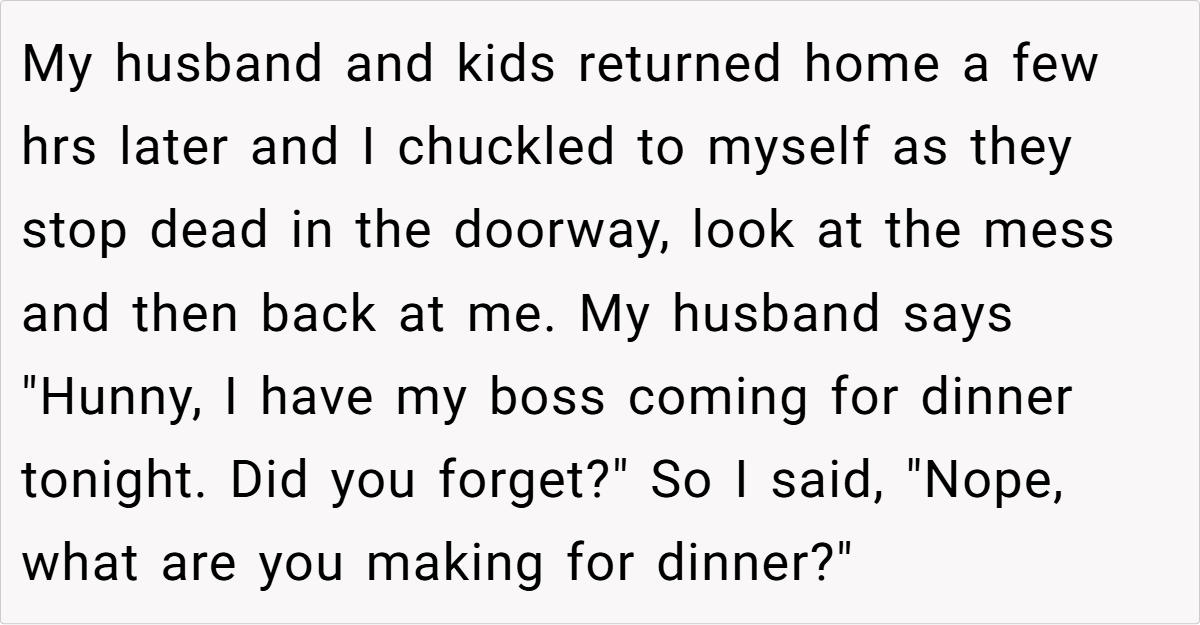
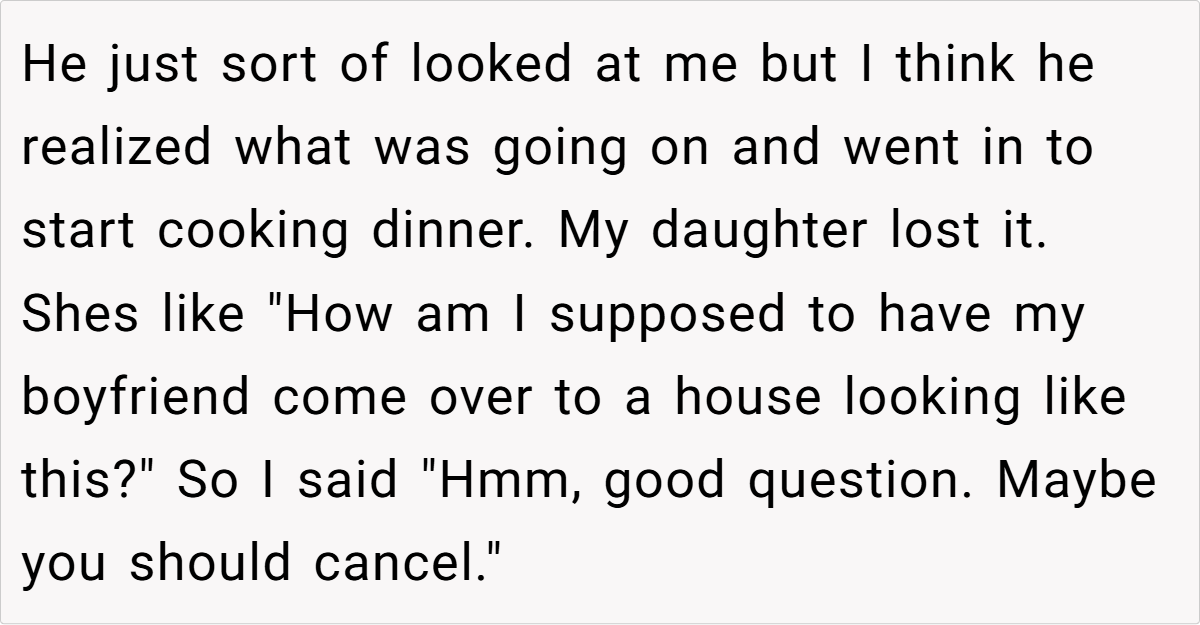
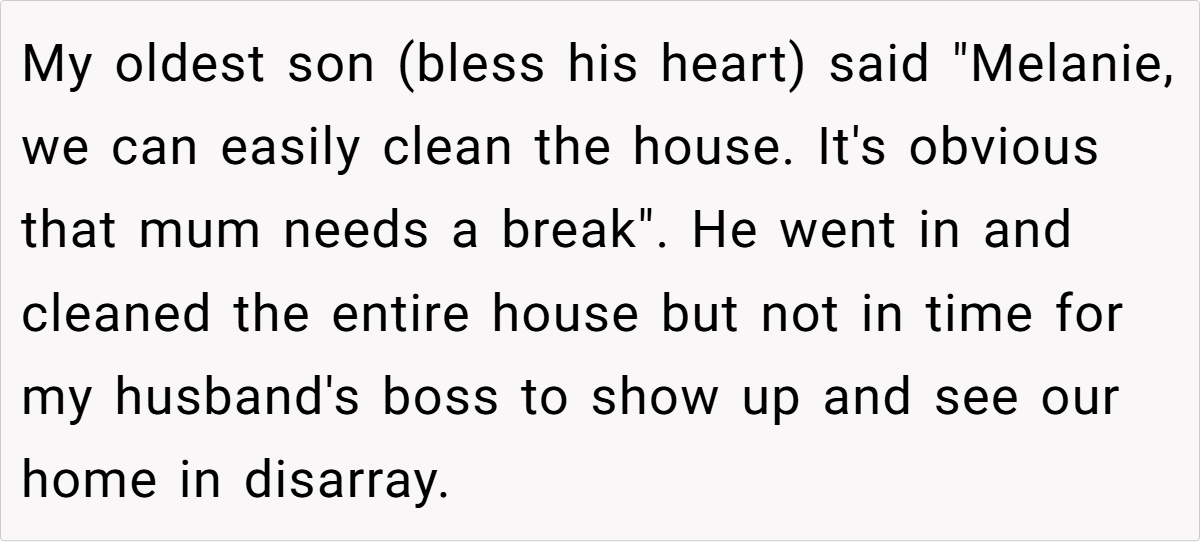
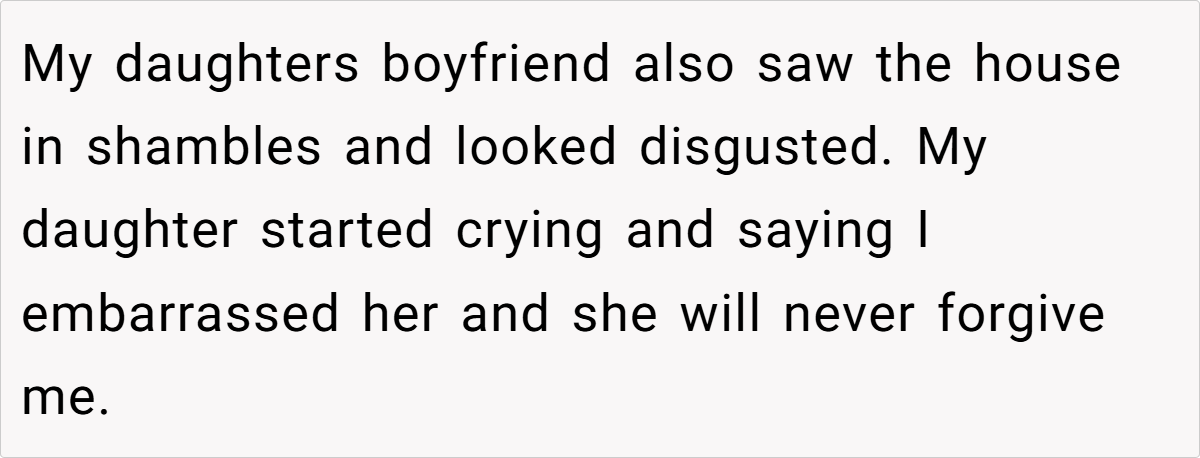

Expert Analysis
At first glance, this may seem like a case of passive-aggressiveness, but it’s actually about mental and emotional labor—the invisible weight of being the only person responsible for the upkeep of an entire household.
1. The Burden of Household Chores
OP’s husband used to help, but at some point, he stopped. The kids had chores but, over time, OP found it easier to do everything herself rather than fight them on it. This is a common trap many parents—especially mothers—fall into.
Sociologist Dr. Arlie Hochschild coined the term “The Second Shift”, describing how working mothers often come home to a full second job of housework and childcare, while their partners and kids contribute little to nothing. Studies have shown that even in dual-income households, women still do the vast majority of housework.
This isn’t about one messy house—it’s about years of unbalanced household labor and OP finally saying, enough is enough.
2. The Weaponized Incompetence Issue
When OP’s family looked to her to fix the situation, it wasn’t just laziness—it was a textbook case of weaponized incompetence.
- They were fully capable of cleaning the house—as proven by OP’s son stepping up to do it.
- They just never felt like they had to because OP always took care of it.
- Her husband expected her to handle everything, even after being away for work.
Dr. Eve Rodsky, author of Fair Play, explains that household responsibility shouldn’t “default” to one person simply because they’ve always done it. Instead, families should approach chores as a shared responsibility, where everyone contributes equally.
3. The Importance of Clear Communication
Some commenters suggested that OP could have communicated better instead of letting the disaster unfold. However, it’s likely that she’s communicated this issue for years, only to be ignored.
Relationship expert Dr. John Gottman emphasizes that when partners repeatedly dismiss each other’s needs, resentment builds up, leading to explosive moments like this one. In reality, this wasn’t about one night of mess—this was a culmination of years of unacknowledged labor.
Moving Forward: A Fairer Household Dynamic
- Set firm expectations: OP should establish clear, non-negotiable household responsibilities for her husband and kids.
- Stop enabling: No more picking up after them. If they let the house fall apart, they deal with the consequences.
- Make chores a team effort: Studies show that children who grow up doing chores are more independent, responsible, and capable adults. (Harvard Study)
Here’s what Redditors had to say:


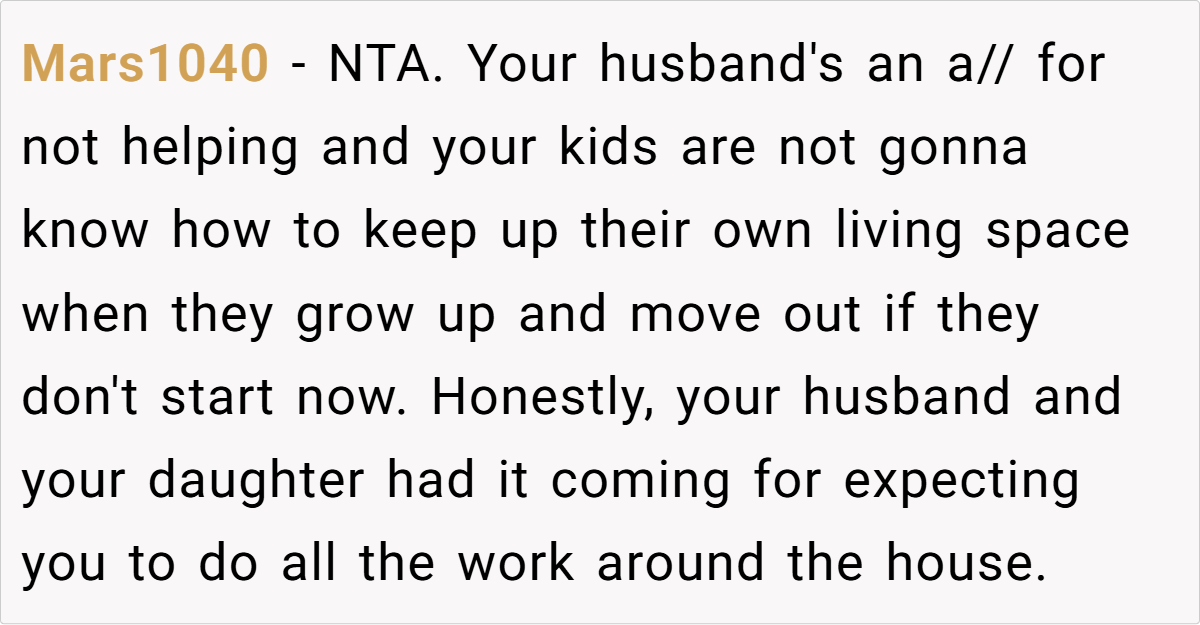
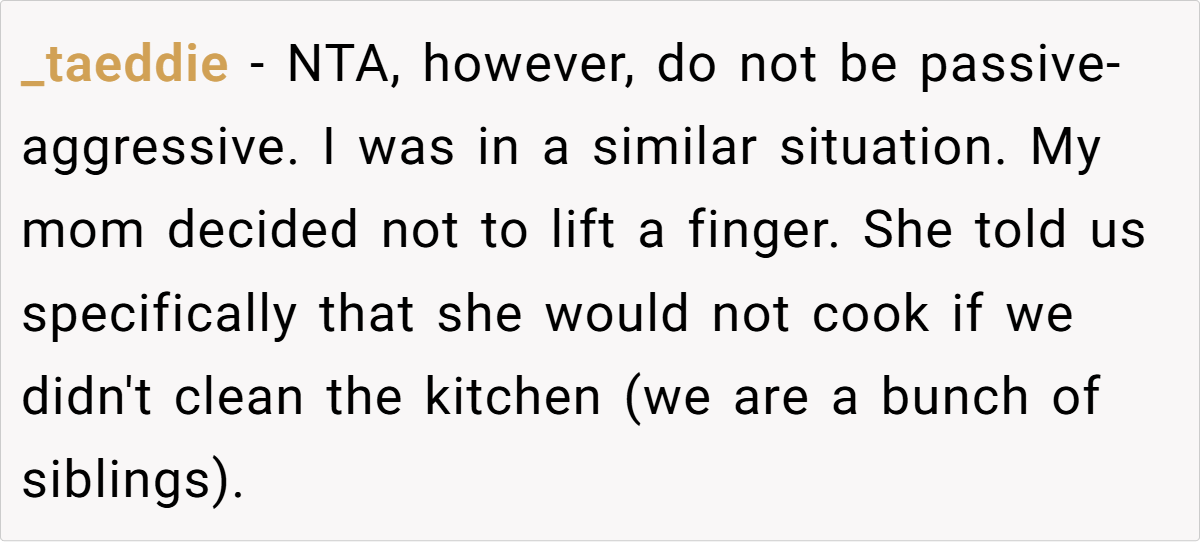
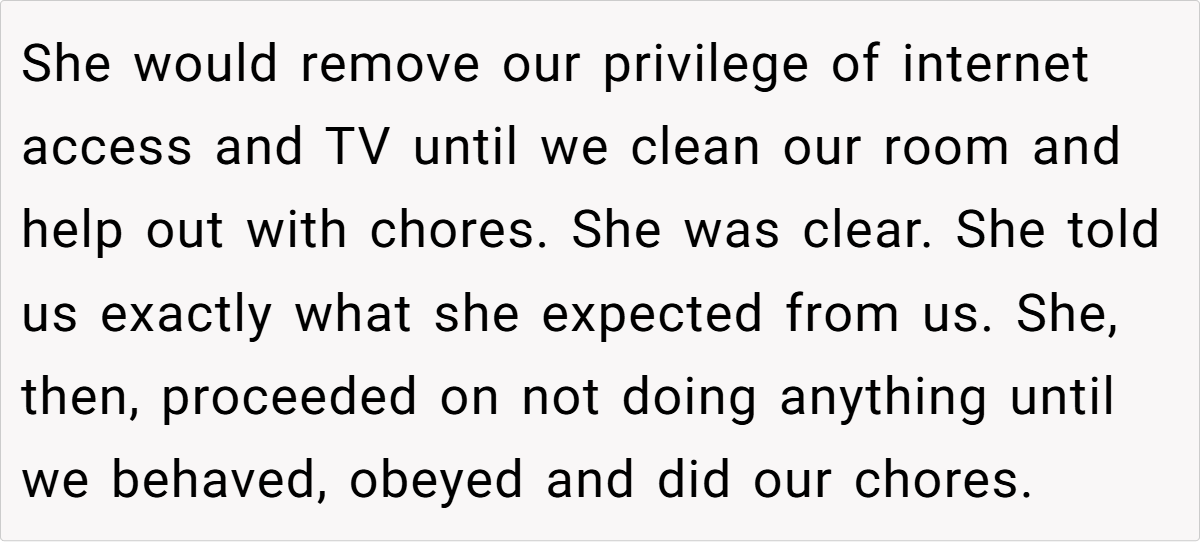


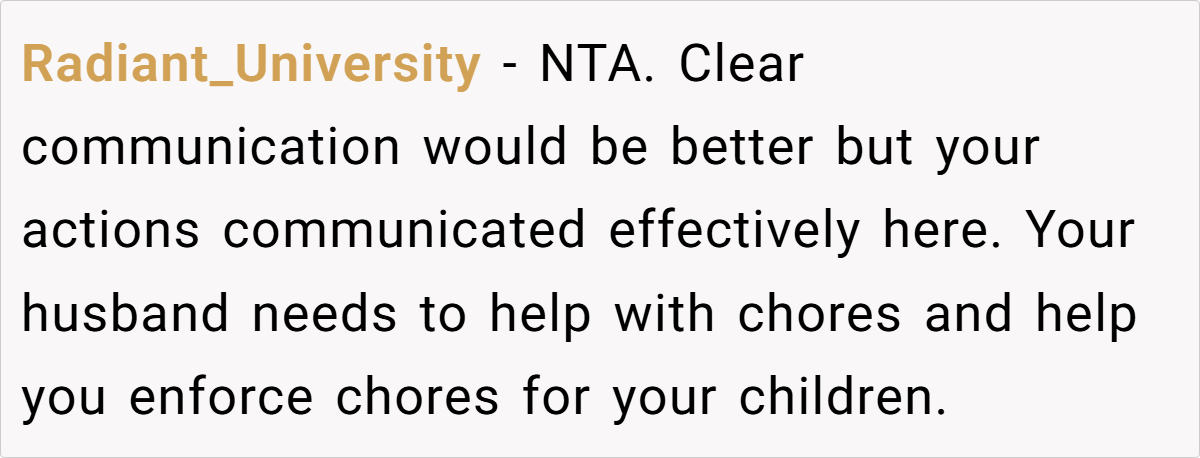
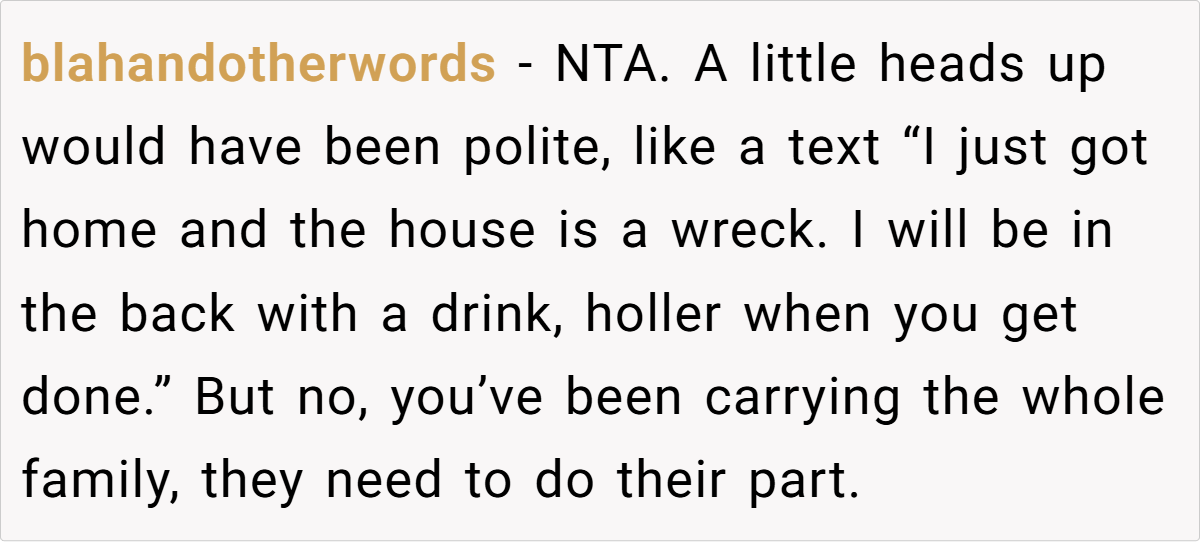
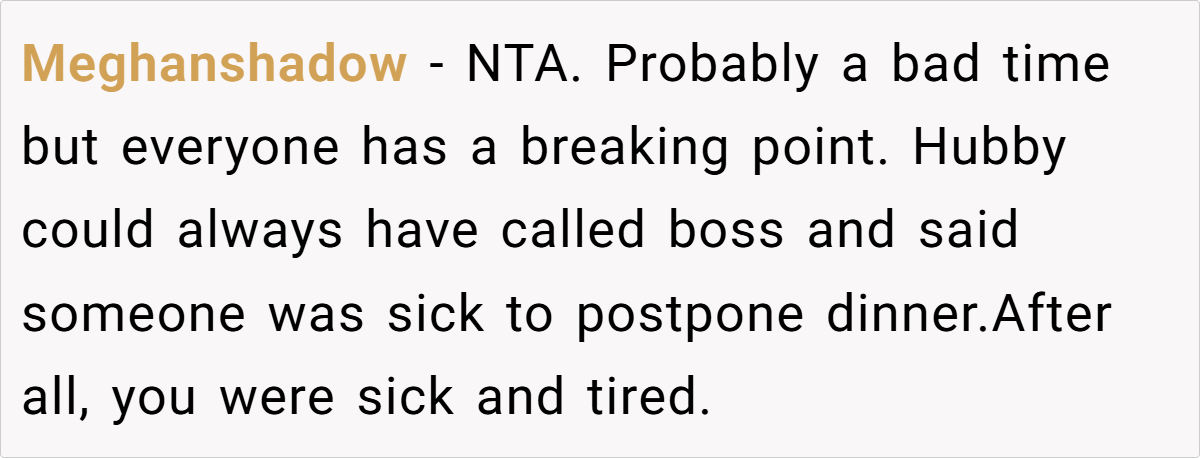

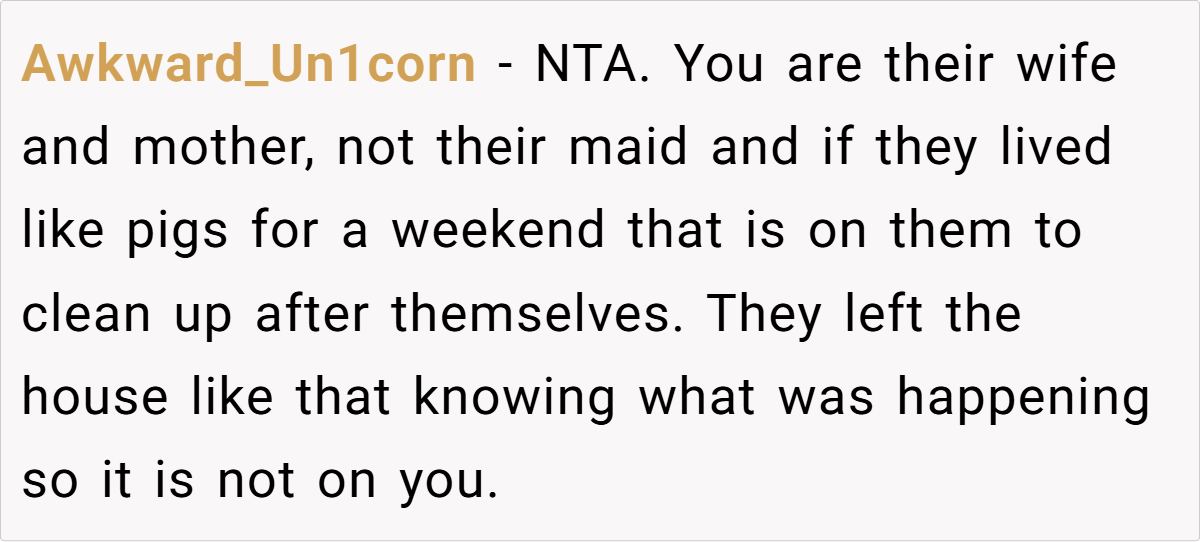
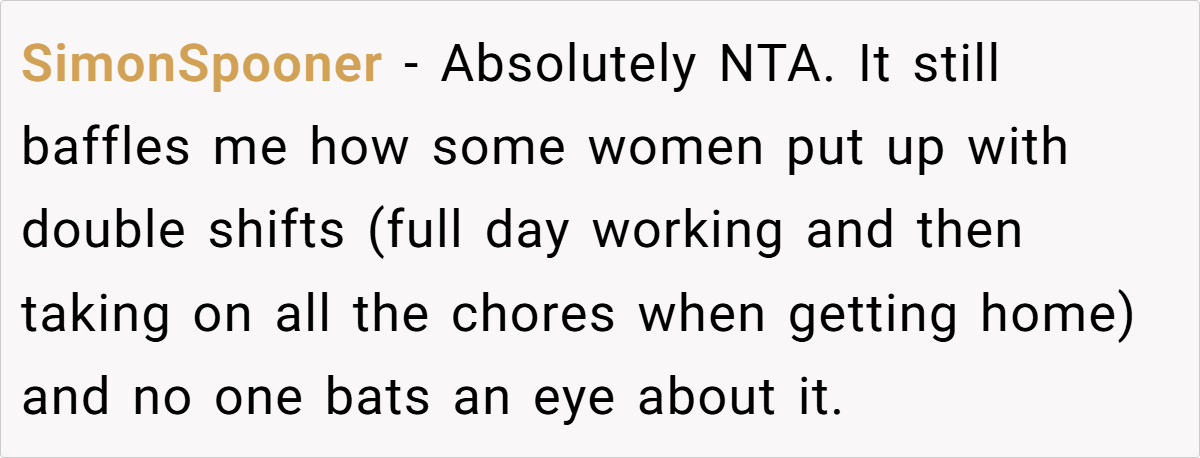
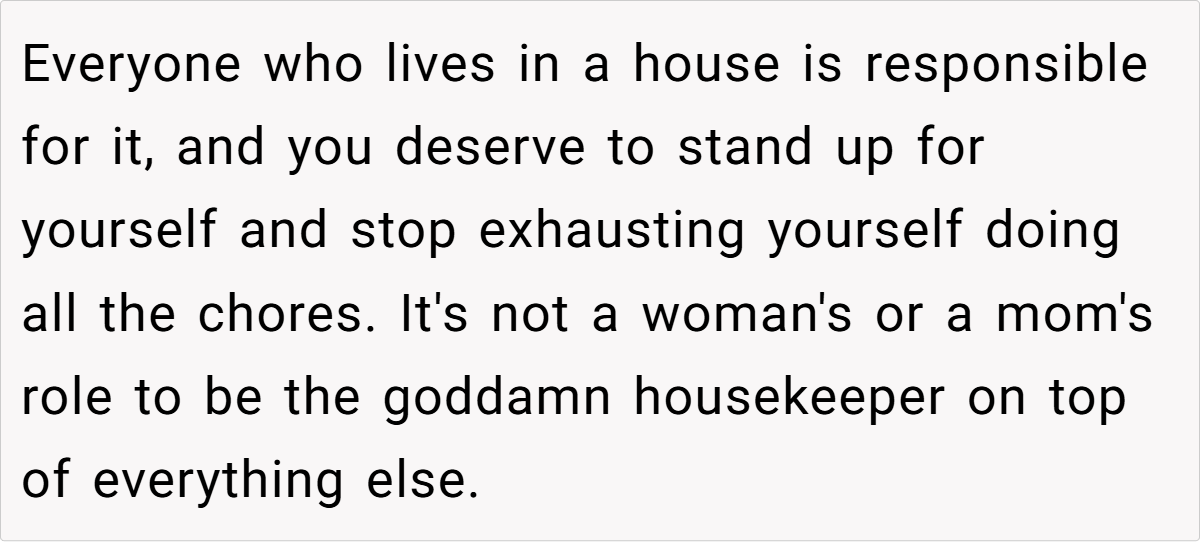
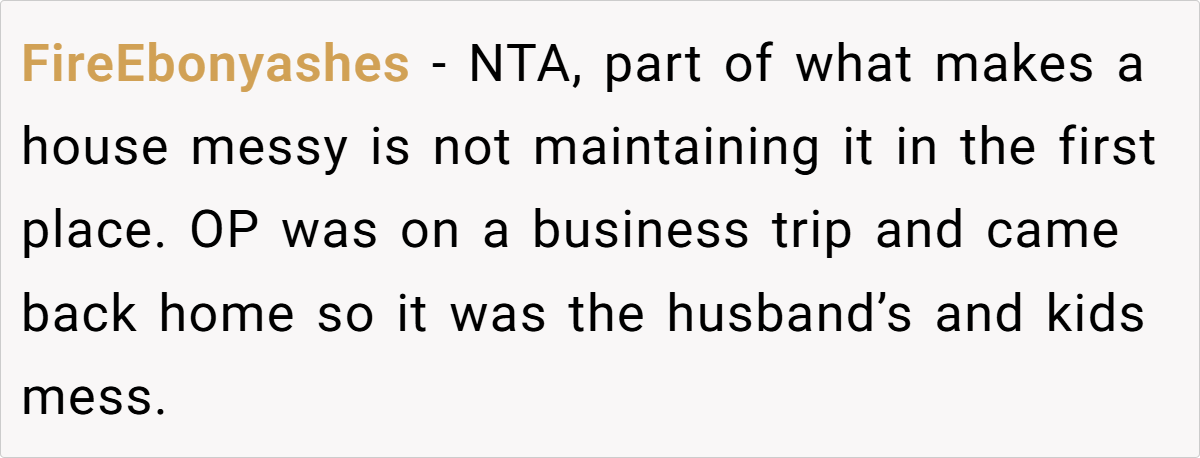
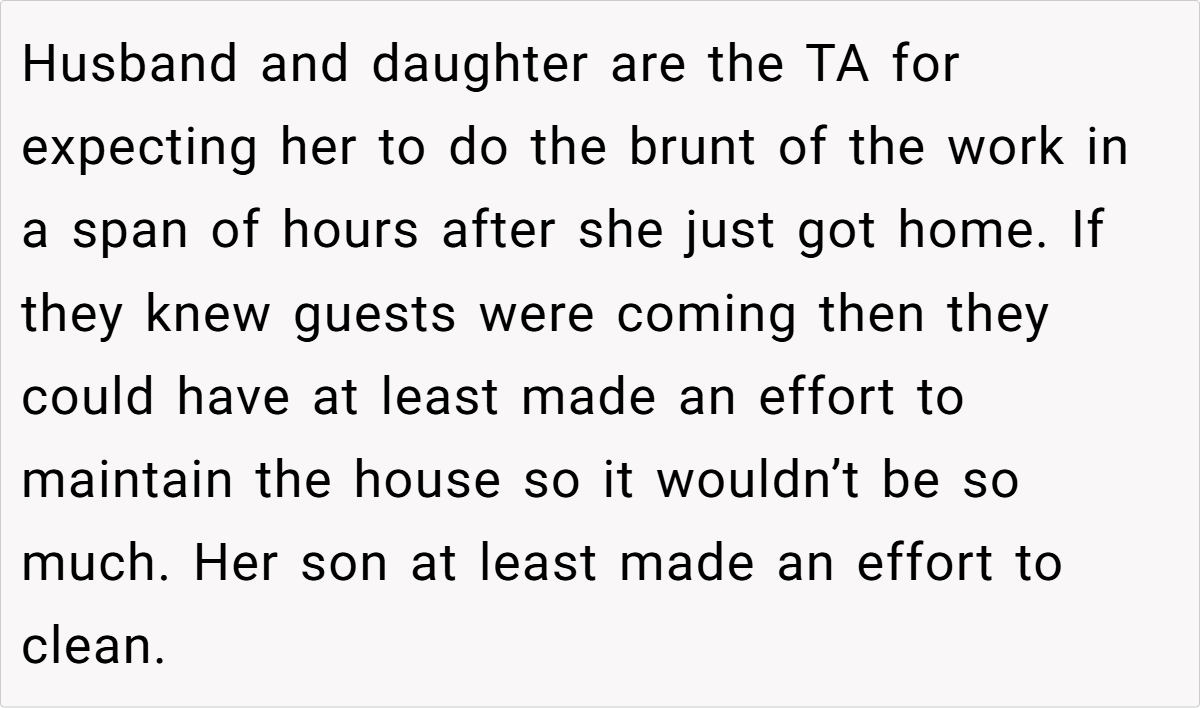
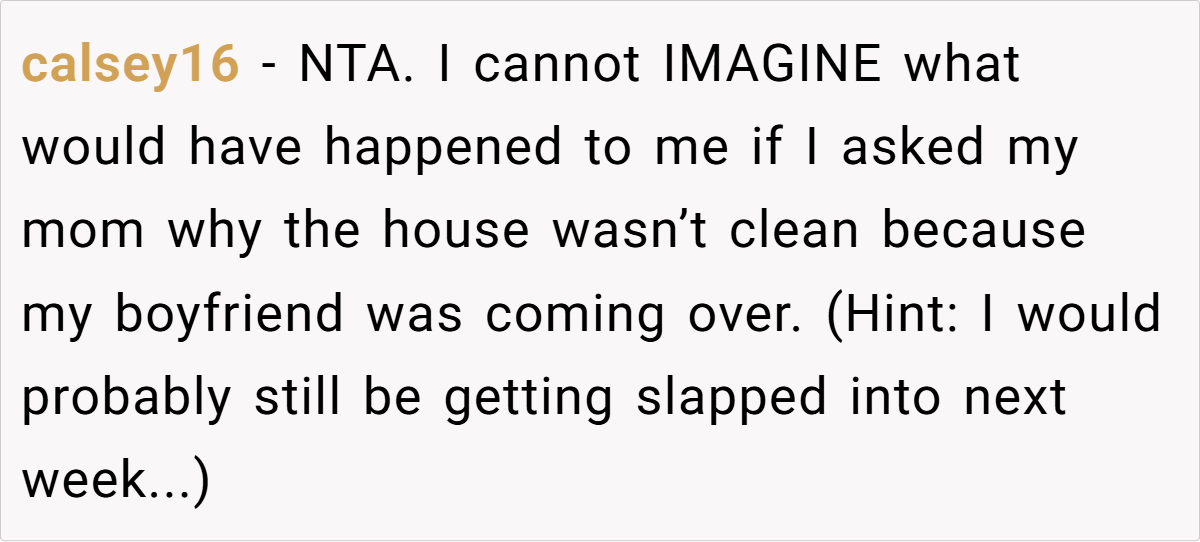

This wasn’t about OP being petty—it was about her finally standing up for herself after years of carrying the mental and physical load of household chores alone. The fact that her husband and daughter were more concerned about their own embarrassment than the actual problem says a lot.
What do you think? Should OP have given them a warning before taking action, or was this the only way to finally get through to them? Share your thoughts below!

